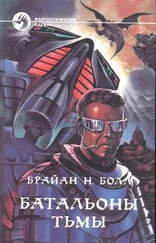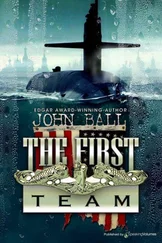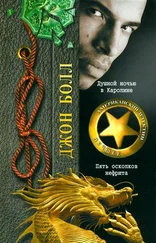The number one engine ran like a dream. When it had been carefully tested, and when the crew working on number four reported no problems with their rebuilding chore, Ferguson went to see the colonel. At the request of both men, Captain Tilton, the Information Officer, was also present.
“Sir,” Ferguson began. “The Penguin is on schedule — a little ahead of it, in fact. All of the instruments check out, three of the four engines are running like Swiss watches, and the structure of the airframe couldn’t possibly be better. You know the quality of the work that’s gone into her.”
“I certainly do,” the colonel agreed, “and that brings up a point I was going to ask you: are you going to paint United States Air Force down her side?”
Ferguson hesitated. “I would appreciate some guidance from you on that, sir,” he said.
“Well, this is unofficial, of course, but if she did have the Air Force name on her, it might simplify getting fuel when you need it and so on. Avionics, for instance.”
“She is a war bird,” Tilton said. “The C-47’s that were her contemporaries are still flying, in many instances, and they carry the Air Force name.”
“Did you say avionics, sir?” Ferguson asked.
“Well, I can’t have an aircraft flying around up here without suitable communications equipment and navigational gear. But I also can’t have any equipment issued to what might be considered a civilian bird.”
Ferguson saw the light. “Sir, the Penguin originally joined the Air Force when it was the Army Air Corps and she never quit. The name goes on.”
“That’s very good, because I called over to Anchorage to have them send some gear back on the C-130. I couldn’t very well report that it was for a bomber, so I told them that she was a rescue vehicle. Do you recall the Dumbo B-17’s that carried lifeboats underneath them during the final stages of World War II?”
“Come to think of it, sir — yes!”
Captain Tilton recognized his moment. “We have the celebration laid out, sir, and it looks very good, if I may say so. The painting of the B-17 in flight has been completed; we want to start the festivities with a special breakfast for all hands who took part in the work; a few have left, but we can’t help that. At the conclusion of the meal, we’d like to have you unveil the painting. This will be at the NCO Club. Champagne will be served — to all but the flight crew.
“The formal ceremonies will start at 1400 hours at the flight line. Chaplain Valen will open with prayer, then Det. Four will be given a plaque for their part in bringing in the wing roots. Sergeant Feinberg will speak briefly on the project, how it came about, and pay tribute to Lieutenant Ferguson for having inspired the whole thing. Lieutenant Jane Miles at J Site will be Miss B-17 for the day. You know her?”
“I do,” the colonel said.
“Then, sir, you, on behalf of the base, and Commander Kure, representing Denmark, will escort Mrs. Kure to the hangar. The doors will be opened and the aircraft will be rolled out onto the ramp. With the photographers on the job, Mrs. Kure will rechristen the Penguin. ”
“Wait a minute,” the colonel interjected. “Mrs. Kure is a very refined lady — have you forgotten the design on the nose of the plane?”
“Sir, we discussed that with the commander and he assured us that it would be all right.”
“OK, then. Continue.”
Tilton consulted his notes. “After Mrs. Kure has done the honors, the band will play the Air Force song. As soon as that is over, the crew will march out in formation and stand beside the B-17 while the national anthem is played. This will all be filmed, of course. After the anthem, the crew will board the aircraft and start engines. The tower will give clearance. As the plane taxies to the end of the runway, the band will play The Passionate Penguin March. Tony did a wonderful job on that — it’s a little suggestive of the ‘Grand March’ in Aida. ”
Tilton paused for effect and discovered that he had the colonel’s complete attention. “Then, sir, everything will be quiet while the Penguin runs up, clears the tower, and moves into position. We’ll have the tower show her a green light, so that everyone can see it.”
“You might want to hook up the communications into the PA system,” the colonel suggested.
“Excellent, sir! We should have thought of that.” Tilton made a note. “Then, after the green light the tower will also voice clear the Penguin for takeoff. That will be the most dramatic moment: she will start down the runway and time her takeoff so that she will be just opposite the spectators when she lifts into the air. After she lands, the final event planned is a gala dinner for all hands. And we would like very much to have you sign an order, sir, restoring the Penguin to operational status. The rescue-craft idea is outstanding: if someone is taken sick at Alert, she can go up and get him. They don’t have a hospital, and we do.”
“When is this to be?” the colonel asked.
Ferguson was alertly proud. “Anytime after twenty days, sir. We want to run all of the final tests to be absolutely sure that she’s one hundred percent.”
“So ordered,” the colonel declared.
* * *
Airman Robert Elliott did not want to leave Thule. His tour would be over in two more days, but missing the rollout and flight of the B-17 represented a material disappointment. He asked for, and was denied, a thirty-day extension of his tour. As a consequence, he departed as scheduled on the rotator and duly arrived at McGuire Air Force Base some hours later.
Since he was automatically on furlough, he did not wait for a military ride; he took ground transportation to Philadelphia International Airport and from there caught a 707 bound for Los Angeles. As he sat on the cushions, admiring the stewardesses and reflecting on civilian life, Airman Elliott began to think of the many things he was going to tell his family when he got off the plane. When his lunch was served he tied in with a willing appetite, but he could not forget the many hours of work he had so gladly put in helping to clean and polish the fuselage of the noble B-17.
There was a civilian, a man in his fifties, seated with him. The middle seat was empty and had been folded down to make a common table. That invited conversation and Elliott was more than willing. He exchanged the usual pleasantries with his companion and then, in answer to a question, told him that he was returning home from Thule.
“I understand that that is a very tough tour,” the civilian said.
“Not so bad, sir. The food is all right, and you get used to it after a while.”
“But it still must be awfully boring.”
Elliott dropped his voice. “Not this time, sir. You see, we had something going.”
“A sports tournament?”
“Oh no, something much better than that.” He stopped, remembering the agreement that nothing would be said or written stateside until the rebuilding was an accomplished fact, but it was all but done now and he had already, to a degree at least, committed himself. “We got into an airplane rebuilding project,” he added, and then wished that he hadn’t.
“Hey, that sounds like fun!”
Obviously the civilian was all right. “It was, sir, a lot. It was really something to do.”
“Tell me about it.”
Elliott thought quickly, but it was a friendly inquiry and nothing more. And the story was a wonderful one. He told it. not in detail, but with enough particulars to convey the basic idea.
The civilian displayed considerable interest. “They aren’t going to try and fly it again, are they?” he asked. The tone of his voice betrayed a concern that was an immediate warning.
Читать дальше












